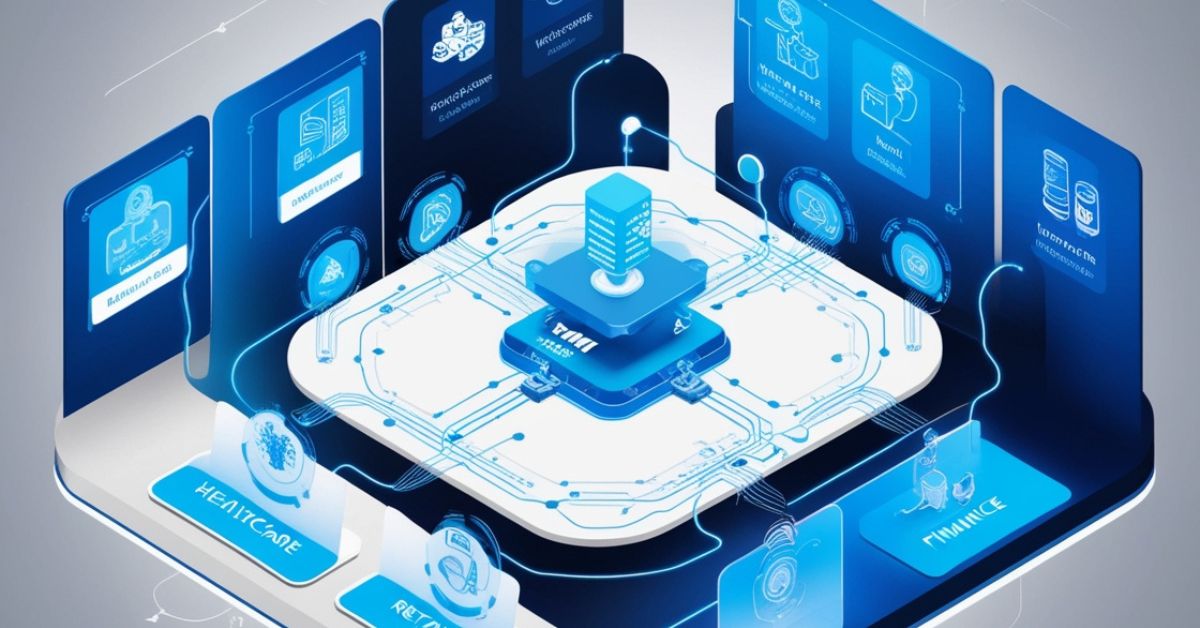IBM Watson AI
|
Future of Watson AI Related Blog |
|
1.AI Ethics & Watson AI |
|
2.Cognitive Services with Watson AI |
|
3.Natural Language Processing (NLP) with Watson AI |
|
4.Machine Learning with Watson AI |
|
5.IBM Watson AI |
|
6.Watson AI |
Introduction to Watson AI: Revolutionizing Artificial Intelligence
In today’s fast-paced digital era, artificial intelligence (AI) is no longer a luxury but a necessity for businesses aiming to stay competitive. Among the many AI platforms available, IBM Watson AI has carved a distinct niche as a powerful tool for driving innovation, enhancing efficiency, and delivering actionable insights. Whether you’re a startup, a small business, or an enterprise, Watson AI offers scalable solutions that meet diverse needs, making it a cornerstone of modern AI applications.
This blog will introduce you to Watson AI, covering its core concepts, features, and industry importance. We’ll explore its transformative applications and highlight how startups and small businesses can unlock its potential for growth. Let’s dive in and discover what makes Watson AI a game-changer in the tech world.
Watson AI Overview: Concept and Role
IBM Watson AI is a cutting-edge AI platform developed by IBM to empower businesses with advanced machine learning, natural language processing (NLP), and cognitive computing capabilities. Named after IBM’s founder, Thomas J. Watson, this platform is designed to process large datasets, draw meaningful insights, and assist in intelligent decision-making.
Watson AI is unique because it excels at analyzing structured and unstructured data, mimicking human reasoning, and providing solutions that are both precise and timely. Its ability to “learn” from data and adapt over time makes it a versatile tool for solving real-world challenges across industries.
Core Features of Watson AI
1. Machine Learning (ML)
At its heart, Watson AI uses machine learning algorithms to identify patterns, predict outcomes, and continuously improve its performance. It’s particularly useful for tasks like fraud detection, sales forecasting, and customer segmentation.
2. Natural Language Processing (NLP)
Watson AI’s NLP capabilities allow it to understand, process, and generate human language. This feature powers applications such as chatbots, virtual assistants, and automated content creation, enabling businesses to improve customer engagement.
3. Cognitive Computing
Watson AI goes beyond traditional AI by mimicking human cognitive processes. It doesn’t just analyze data—it interprets it, understands context, and provides recommendations, making it invaluable for complex problem-solving tasks like medical diagnostics and legal research.
Importance in the AI Landscape
Watson AI is not just another AI tool; it is a pioneer in the industry. Its significance lies in:
- Industry Transformation: Watson AI has been instrumental in reshaping industries like healthcare, finance, retail, and manufacturing by enabling smarter, data-driven decisions.
- Tech Evolution: By integrating AI with existing systems, Watson AI has accelerated the adoption of AI technologies, making them accessible even to smaller businesses.
- Scalability: From startups to enterprises, Watson AI provides solutions that grow with your business needs, ensuring long-term value.
Applications & Use Cases
1. Healthcare
Watson AI is used for analyzing medical records, assisting in diagnostics, and suggesting treatment plans. For example, oncologists use Watson to identify personalized cancer treatments based on patient data and medical research.
2. Customer Service
Watson’s AI-powered chatbots provide 24/7 customer support, resolving issues quickly and improving customer satisfaction. A telecom company, for instance, can deploy Watson to handle billing inquiries and troubleshoot technical problems.
3. Retail
Retailers leverage Watson AI to analyze customer behavior and optimize marketing strategies. For example, Watson can recommend personalized product suggestions, boosting conversion rates.
4. Financial Services
Banks and financial institutions use Watson AI to detect fraudulent activities, assess credit risks, and manage portfolios efficiently.
5. Education
Watson AI can create personalized learning experiences by analyzing student performance and recommending tailored resources.
How Startups and Small Businesses Can Benefit
Startups and small businesses often operate with limited resources, making it challenging to adopt cutting-edge technologies. Watson AI addresses this by offering:
- Affordable AI Solutions: Watson AI’s flexible pricing models allow smaller businesses to adopt its tools without stretching budgets.
- Ease of Integration: Startups can integrate Watson AI with existing systems like CRM or ERP without requiring major infrastructure changes.
- Automation: Watson AI automates repetitive tasks such as data entry, customer service, and report generation, freeing up time for core business activities.
- Data-Driven Insights: By analyzing customer data, Watson AI helps small businesses make informed decisions to improve operations and increase revenue.
Actionable Advice for Choosing Affordable AI Tools
- Define Your Needs: Identify the specific problems you want AI to solve. For example, do you need better customer engagement or improved inventory management?
- Start Small: Begin with basic Watson AI tools and scale as your business grows.
- Seek Expert Guidance: IBM provides support and training, helping businesses maximize their investment in Watson AI.
Challenges to Consider
While Watson AI offers numerous benefits, businesses should be aware of potential challenges, including:
- Data Preparation: AI models require clean, well-organized data for optimal performance.
- Learning Curve: Teams may need training to effectively use Watson AI tools.
- Initial Costs: Although scalable, the upfront costs of implementation may be a hurdle for some startups.
Conclusion: The Future with Watson AI
Watson AI is not just a tool; it’s a strategic partner in navigating the complexities of the digital world. From startups seeking to make their mark to established enterprises aiming to innovate, Watson AI empowers organizations to harness the full potential of artificial intelligence.
As you consider adopting Watson AI, ask yourself: What areas of my business can benefit most from AI-driven insights? Start small, scale thoughtfully, and let Watson AI help you achieve your goals.
With its blend of advanced features, scalability, and affordability, Watson AI is truly democratizing AI, making it accessible to businesses of all sizes. Are you ready to transform your business with Watson AI? Let the journey begin.
Here Top 10 FAQs About Watson AI
1. What is Watson AI, and how does it work?
Watson AI is IBM’s artificial intelligence platform that leverages advanced technologies like machine learning, natural language processing (NLP), and cognitive computing to analyze data, uncover patterns, and provide actionable insights for various industries.
2. How does Watson AI differ from other AI platforms?
Watson AI stands out due to its robust cognitive capabilities, seamless integration across industries, and focus on natural language understanding, making it a versatile tool for solving complex problems and automating decision-making.
3. What are some key features of Watson AI?
Key features include machine learning models, NLP for human-like text understanding, predictive analytics, real-time data processing, and scalability for diverse use cases like customer service, healthcare, and finance.
4. How can startups benefit from using Watson AI?
Startups can use Watson AI for cost-effective automation, data analysis, and customer engagement. It helps streamline operations, uncover market trends, and improve decision-making, even with limited resources.
5. What industries are leveraging Watson AI, and for what purposes?
Industries such as healthcare (diagnostics and patient care), retail (personalized shopping experiences), finance (fraud detection), and education (adaptive learning systems) widely use Watson AI to enhance operations and innovation.
6. Is Watson AI affordable for small businesses?
Yes, Watson AI offers scalable pricing models, allowing small businesses to access AI-powered solutions without incurring high costs. Tools like Watson Assistant and Watson Discovery can be tailored to fit specific business needs.
7. How does Watson AI handle data privacy and security?
IBM ensures robust data privacy and security for Watson AI users by implementing industry-standard encryption, compliance with regulations like GDPR, and maintaining user control over sensitive data.
8. Can Watson AI integrate with existing business systems?
Yes, Watson AI integrates seamlessly with existing tools like CRMs, ERPs, and cloud platforms, allowing businesses to leverage AI without disrupting their current workflows.
9. What are some real-life examples of Watson AI applications?
Examples include virtual assistants in customer service, predictive maintenance in manufacturing, disease diagnosis in healthcare, and personalized marketing campaigns in retail.
10. How can businesses get started with Watson AI?
Businesses can start by identifying their key challenges and exploring Watson AI tools like Watson Assistant or Watson Studio. IBM offers detailed guides, free trials, and expert support to ease implementation.




0 Comments